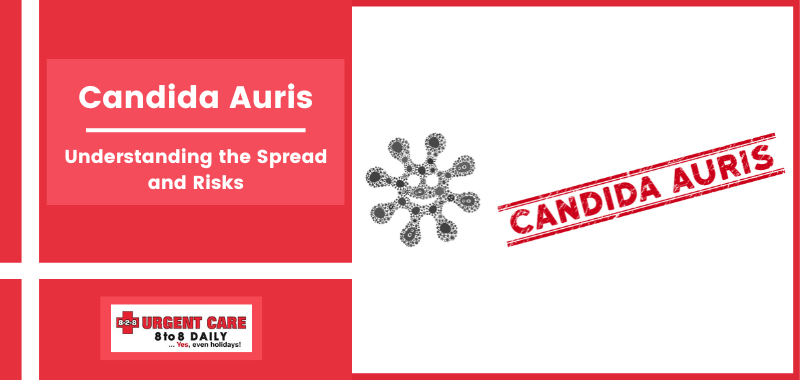


Candida Auris is a fungal microbe that has recently become a cause for concern in healthcare settings around the world. This multidrug-resistant virus can survive on surfaces for weeks, making it highly taxing to eradicate. According to recent studies, candida auris infection cases have dramatically increased, with fatality rates stretching from 30% to 60%.
This blog will enlighten you about this fatal fungus infection so you can start a successful candida auris treatment and put your worries to rest!
Candida auris, often called C. auris, is a microscopic member of the Candida fungi family. Candida-type microorganisms can be found in a wide variety of species. Many are safe and thrive on your skin or inside your body.
Since its initial discovery in 2009, C. auris has spread quickly worldwide, causing serious infections in people with impaired immune systems. As it can remain on surfaces for weeks, healthcare providers are more likely to become infected. C. auris needs more attention and efficient management strategies as it has become a hazard to worldwide wellness.
Besides airborne transmission, Candida auris infection can also spread through direct contact with sick individuals or contaminated objects. Research has demonstrated that the fungus persists for weeks within hospitals, contributing to its dissemination throughout medical facilities. Infected medical devices, such as ventilators and catheters, can spread disease. C. auris gets easily transmitted from one patient to another in a scenario when measures to prevent infections are ineffective.
The duration of Candida auris on surfaces varies depending on factors like surface type, environmental conditions, and the initial concentration of the fungus. However, studies suggest that the fungus can persist on surfaces for weeks to months, even with standard cleaning and disinfection procedures.
Depending on the extent and location of the infection, Candida auris symptoms can change. While some people may not exhibit symptoms, others may encounter catastrophic, potentially fatal problems. Here are a few typical signs of a Candida auris infection:
The yeast Candida aureus can bring on infections in people. Although the exact cause of Candida Auris virus is unknown, it is believed to be spread from individual to individual or by infected surfaces and equipment in hospitals.
A person with a weak immune system, recent surgery, hospitalization, or on antibiotics or antifungal medications is more likely to catch an infection.
Most cases of C. auris include people with several chronic or recurrent disorders. Those who live in nursing homes or regularly visit hospitals are more likely to get Candida auris infection.
These additional risk factors are included:
Here are several methods frequently used to identify C. auris:
Despite the extremity of C. auris transmission, most of them are treatable. Candida auris treatment typically involves echinocandins, an antifungal drug, are typically used as the initial course of treatment. Treatment-resistant strains can cause infections. To eliminate the infection in these cases, doctors administer various antifungal drugs at high doses.
Here are the prevention tips for C. Auris:
8-2-8 Urgent Care offers cost-effective, high-quality care to meet the diagnosis and treatment needs of the patients. We are one of the leading walk-in urgent care centers in Oceanside, CA that can help alleviate your troubles and enable you to lead a fulfilling life. You can also contact 8-2-8 Urgent Care and our staff will walk you through our online check-in from the convenience of your home! Call (760) 216-6253.